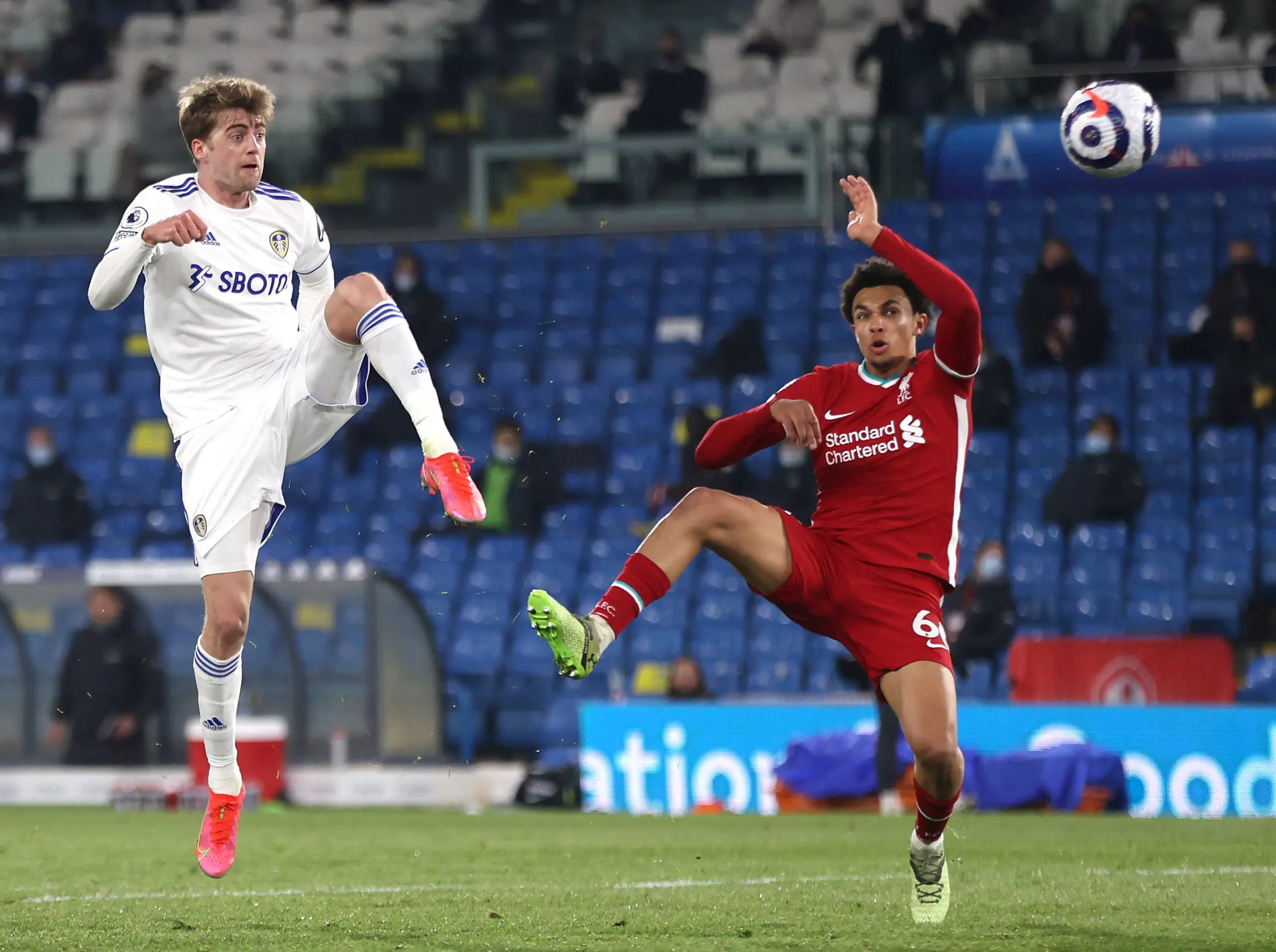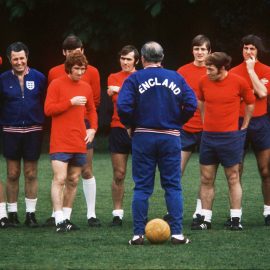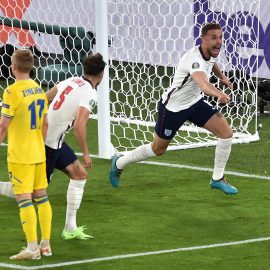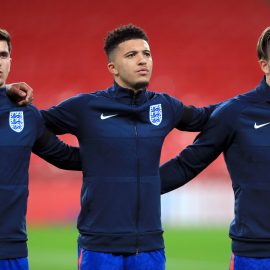When it comes to the annals of English football history, it’s unlikely Steve McClaren’s tenure in the hotseat will get a particularly favourable write-up. Somewhat tactically naive, unable to motivate players, outclassed on occasions by lesser teams, and failing to qualify from a group that was probably one of the easiest routes to a major tournament England will ever get.
Yet that ill-fated game against Croatia could just be the spark to reignite English football and McClaren and his umbrella may have keen the fillip to give the national game the kick up the backside it so urgently needed.
It’s hard to predict exactly how England would have done had they reached the finals in Austria and Switzerland, but a decent guess, if we swop them with Russia, would have been the quarter-finals, where they’d probably have lost to Holland. Maybe on penalties. There would be grumblings, the inevitable mass sulk, McClaren would probably keep his job and England would stutter towards another disappointing qualifying campaign to South Africa 2010, beaten to the top spot in their group by Croatia again. The old, underlying problems at Soho Square and the national game in general would still remain as everybody kept believing themselves all was ok in the English game.
As an alternate future, it’s about as appealing as one of the parallel worlds Dr. Who’s assistant, Donna Noble, keeps finding herself in these days. Fortunately, we’ve made that left turn and the future for England is looking a lot brighter.
Reasons to be cheerful
1. Burton-on-Trent finally gets the go-ahead
Whether it was the FA finally giving Burton the go ahead because they needed to look like they were doing something, or because they realised the importance of the centre in helping mould future England teams, reviving this scheme will be one of the best side-effects of England’s failure to qualify.
Sven-Goran Eriksson once remarked that if England had an equivalent to Clairefontane in France, this country could have won a major championship. Instead, with the closure of Lilleshall in 1999 – which produced players like Michael Owen and Joe Cole – youth development has been left to the clubs who, not unreasonably, have been scouring the globe rather than staying within England’s borders.
Having an ongoing permanent base, a centre of excellence for up-and-coming British players and the round-the-year work such as science, coaching, medical and video analysis departments can only benefit England. Although the centre is unlikely to be ready until 2010, it’s a huge step in the right direction – and a step that could have been completely demolished if England had beaten Croatia.
2. Appointing the right man. Quickly. And sensibly
When it came to replacing Sven, the FA managed to make a bigger hash of the task than anybody could have imagined. First they announced they were appointing Scolari before any agreement had be made, only for Big Phil to give a polite ‘no thanks’. Then they bowed to pressure from a jingoistic press, fed up with Sven and longing for an Englishman, and went for Steve McClaren. The media knew he was second choice, the players knew he was second choice, the fans knew he was second choice and the script for the last two years was almost written before a ball was kicked.
This time around, they’ve carefully considered the options, taken a more dispassionate look at the candidates and given Capello the job without any faffing around. It’s a fantastic opportunity for a clean break from the past and to start the next qualifying campaign from as blank a slate as you’re going to get.
The new gaffer has already made it clear that he won’t be swayed by reputation – which includes addressing the Liverpool captain as Mr. Gerrard rather than Stevie G – and nor will he be swayed by the media. Sometimes you need an outsider to bring the right perspective along and in Capello they have a man who has been quietly making the right noises, and is unlikely to be tolerant of failure. Most importantly, he’s got the players wanting to play for the shirt.
3. Sorting out England’s youth
Tying in to reason one, England’s failure may just get Premier League clubs looking back to developing or taking a chance on English talent. Burton, if handled correctly, will give added value to the cream of young players and, while not necessarily within the clubs’ youth academies, could complement it.
At the same time, especially given the current uncertainly over excessive use of foreign players (which, incidentally, is neatly debunked as hokum here), combined with the credit crunch, may just see clubs – either out of a wish to do a bit more for England, jumping the gun in case they need home-grown players, or just plain guilt at not fielding enough Englishmen – be prepared to start pushing a few more young talents towards the first team.
At the managerial end, perhaps stung by the accusation that young home-grown managers don’t get chances, we now have Paul Ince appointed as manager of Blackburn, to replace Mark Hughes, who moved onto Manchester City. Both of these clubs could have easily gone for the foreign option (yes, I know Hughes is Welsh) but chose to stay closer to home.
In themselves, guilt or a quick bit of sucking up to the FA and England fans demanding Englishmen on the pitch managed by an Englishman aren’t great reasons to bring through young English players, and it may even smack of tokenism. But these things have a habit of shaking out into something more sensible and if more clubs are willing to invest in young English players as a side-effect of English failure, then that is a good thing.
4. Reality checks all round
The England squad in the last qualifying round was full of big name players with even bigger egos who, for whatever reason, seemingly didn’t turn up whenever they pulled on the three lions. This was due in part to a poor manager, the knowledge they were unlikely to be dropped, or the mindset that, because they played in the best league in the world, they should be able to beat lesser countries without breaking a sweat. All three comfort zones have now been removed.
These superstar egos have now experienced humiliating failure, which they won’t want to experienced anytime soon, while Capello has made it clear that he’s not afraid to leave out big names like Owen and Lampard if they’re not performing or simply don’t fit into his team. Aragones did the same with Raul, and picked a team rather than individuals, and Spain didn’t do too badly out of it.
England’s team may be earning enough money to buy a small island each, but the idea of being dropped or humiliated for the national team will still rankle, and we may yet see a decent performances in a white shirt from some of these players who have hitherto underperformed.
5. Getting your house in order
The FA have not, in recent years, been a particularly efficient or dynamic organisation. We’ve already touched on McClaren’s appointment, then there’s the Wembley financing debacle that was a millstone dragged behind the organisation since its inception, while in the majority of dealings with the Premier League, the FA has veered between toothless and negligent, often both. But as long as the game muddles through and England don’t fail completely and abjectly then there’s been no hunger for overhauls.
So, with England now failing completely and abjectly, it is, to borrow from Sir Trevor Brooking, the perfect time for root and branch review. With a good deal of the ire towards England’s failure to qualify directed at Soho Square, the inevitable period of reflection will hopefully shake out any complacency within the organisation as they look to go some way to restoring English pride.
Already, we’ve seen the FA refuse to roll over for Game 39 (although there will be several more battles over this to come), revive Burton, and generally start sounding like a body that wants success rather than one that is reluctant to change. Capello, also, is not the kind of man to accept mediocrity.
With the FA putting serious effort into bidding for the 2018 Word Cup, it will not look good if the national team struggles to make major tournaments.
But, heaven knows we’re still miserable now
England’s revival could still be thwarted, though, if the misery and sulking that has accompanied the failure to qualify continues and lapses way beyond what could be described as reasonable self-indulgence.
Watching the press and fan reaction over this past month is somewhat akin to a man who’s been dumped by a woman wholly unsuitable for him, yet refuses to acknowledge any problems in the relationship. Ahmed’s already noted the anti-England rants, while the collective roundup of wallowing self-pity mixed with stubborn arrogance reached its nauseating climax in the British press following Spain’s victory.
The English media needs to accept that England simply weren’t good enough to get to Vienna and Basle, and stop being stunned that a country that produces the so called ‘best league in the world’ doesn’t have a God-given right to turn up at every major finals, or to beat every team it plays. We have the same attitude to the Eurovision song contest, and look how well we’ve done there in recent years.
It may be too much to ask that the mass hysteria that surrounds the English football team can be abandoned because of their failure to reach Euro 2008, but it may yet temper expectations into something more realistic and sensible, if no less passionate. Combined with the above, it could turn England into a lean, mean, hungry force on the pitch backed by fans who don’t start booing the minute the team try a bit of patient build-up play rather than lump it up front.
2010 may be a bit early for the changes to take effect, but come 2012, England could be a real force. Earlier this month a friend of mine described England’s non-attendence at Euro 2008 as “a disaster”. With respect to said friend, it is anything but, and could just be the catalyst for English success in subsequent tournaments.
Add Sportslens to your Google News Feed!






